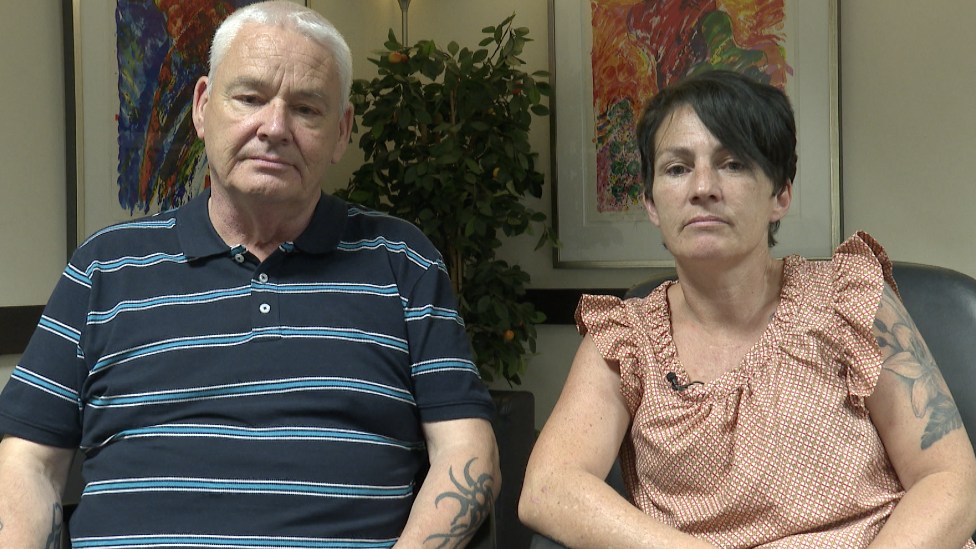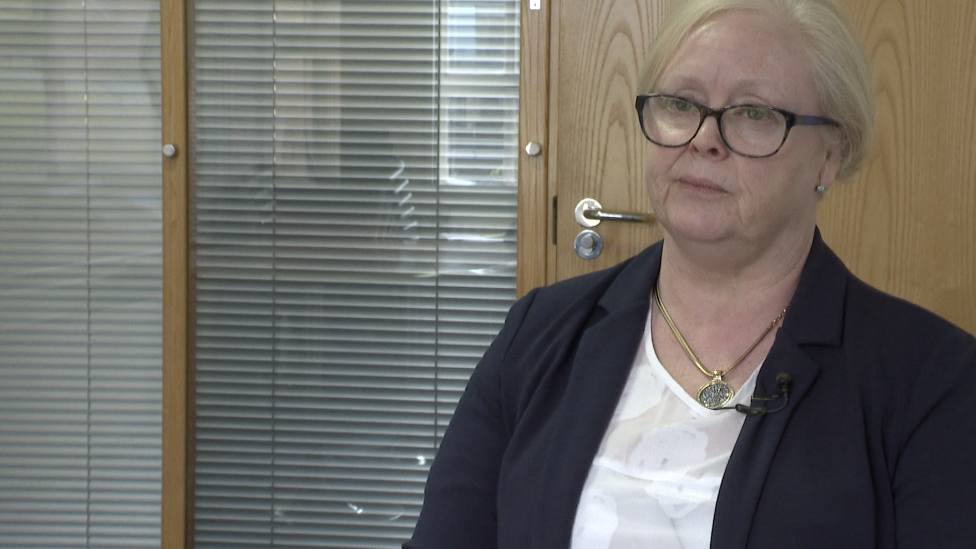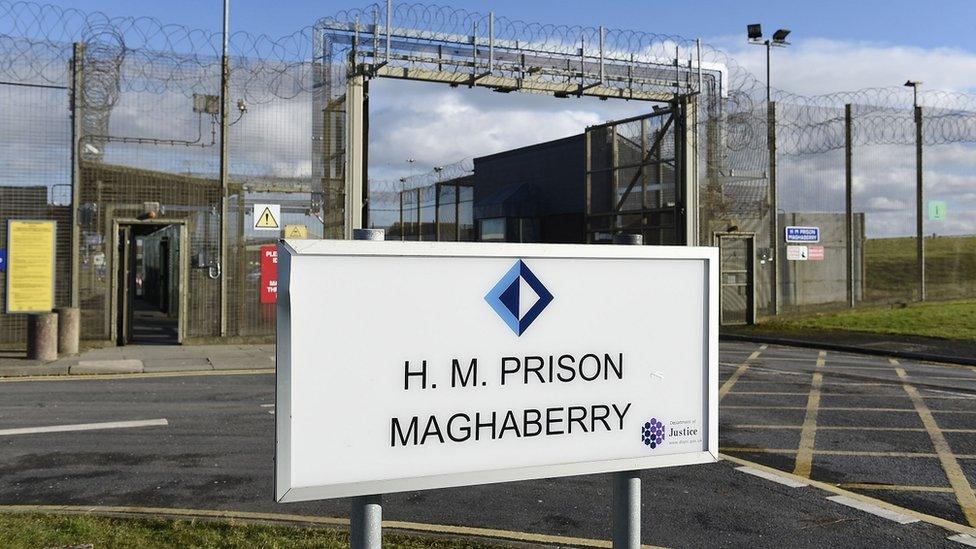Prisoners' 'lives at risk' after jail release
- Published
Joseph Rainey, 20, died in hospital of injuries he had sustained in Hydebank Wood Prison
Forty-six people died in a Northern Ireland prison or within a fortnight of being released from jail in the past five years, BBC News NI has learned.
Twenty-three died in custody, and the same number died in the two weeks after leaving jail.
Many of those deaths between 2014 and 2019 are linked to substance addiction.
The Probation Board for Northern Ireland said it works with offenders to "minimise risk, both to themselves and to others".
However, the family of one prisoner, who died in hospital after attempting to take his own life, said he had been "badly let down" by the authorities.
The figures were provided by the prisoner ombudsman's office who said the majority of the deaths were 'self-inflicted' - most of those were drug and alcohol related.
Prisoner Ombudsman Dr Lesley Carroll says she is concerned that post-custody deaths are under-reported.
She believes there is "a dip in the system" for some vulnerable prisoners when they leave custody and that more should be done to ensure ex-inmates have access to services such as GPs, addiction support and housing.
She said: "In some instance, for example, if it is difficult to get an appointment with a GP it is impossible to access required medications and some may decide to self-medicate with drugs acquired on the streets.
"You don't know what the balance of that drug is, if it's the proper dosage, you make take too much and the results can be catastrophic."
She added: "We need the right agencies across health and justice talking to each to come up with an inter-agency approach to identify those people not being caught by the system.
"An answer should be found because there are people's lives at risk."

'It was like he was possessed'
Joseph Rainey, 20, died in hospital of injuries he had sustained in Hydebank Wood Prison after attempting to take his own life 10 days previously. He died as a result of severe brain damage.
His mother, Sarah, recalls: "Those ten days were so tough because Joseph took seizures, it was like he was possessed, he would lift right off the bed.
"It was heartbreaking to watch your child going through something like that, it tore me apart."
The west Belfast man had been to prison on four occasions for offences including theft and criminal damage.
He had been on prescription medication for depression, but his father, Tom, says he also had a wider drug problem that he struggled to get help for.

Joseph Rainey's parents, Tom and Sarah, have been critical of the care received by their son
"Joseph was very close with his grandfather and when he died, he went down a slippery slope of drug use and he went from cannabis to tablets. I think that's when things started to go really wrong and he would end up in prison.
"When he was in prison it was made very clear that when he was in those four walls we didn't have a say, but when he left with the same problems, there was no help. He went back to drugs and he wasn't given support.
"I believe he was badly led down by the probation service."
He added: "The day we buried Joseph we were in the kitchen and we got a phone call from the probation service demanding to know where he was, because he hadn't attended a meeting.
"I thought to myself: ' If these are the people who are supposed to know where he is and this is what is in place to look after these kids, what chance do they have when they leave prison?'"
A prisoner ombudsman investigation found that before being sent to Hydebank, Mr Rainey had spent 38 hours in police custody where they had recorded he was "suicidal".
However, the ombudsman found that this information was "ignored" on his arrival to Hydebank Wood and it was not passed on to his committal officer who was consequently unaware of his suicide risk.
Hours later, Mr Rainey attempted to take his own life in his cell.

Approximately 80% of prisoners in Maghaberry Prison, Northern Ireland's largest jail, are on prescription medication.
In recent years, a number of critical reports have said that more needs to be done to protect vulnerable prisoners and to prevent deaths in custody in Northern Ireland.
A key role of the prisoner ombudsman's office is to investigate prison deaths, but it also has the discretion to investigate deaths that occur 14 days after someone is released from prison.

Prison Ombudsman Dr Lesley Carroll said they were not fully informed about post-custody deaths
The focus of these investigations is to examine if there was any aspect of the prison care that contributed directly to their death.
Dr Carroll said: "There is no legal obligation to inform my office of deaths that occur just after a prisoner leaves custody, so we're relying on organisations like the prison service, the probation service, a hostel manager, a police officer or a family member knowing about the role we can play.
"We're missing an important part of the puzzle if we're not fully informed about post-release deaths."
The South Eastern Health and Social Care Trust oversees prison healthcare in Northern Ireland and said it recognises the "increased risk" when people go into or leave jail.
A spokeswoman said: "When a person enters custody they remain registered with their community GP practice and communication systems are in place for sharing information between healthcare teams.
"The trust continues to work with justice partners and health colleagues across the region to ensure appropriate care pathways are in place to support transitions."
If you or someone you know is struggling with issues raised by this story, find support through BBC Action Line .
- Published27 November 2018

- Published27 November 2018
